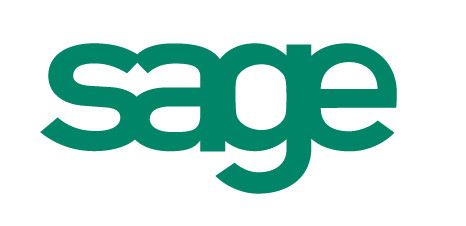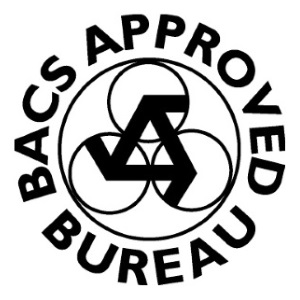How to handle HMRC debt and avoid penalties
Managing debt owed to HM Revenue & Customs (HMRC) is crucial for UK businesses and individuals to maintain financial stability and avoid penalties. This comprehensive guide outlines effective strategies to handle HMRC debt and prevent associated fines.
Understand Your Tax Obligations
Begin by gaining a clear understanding of your tax responsibilities:
- Identify due taxes — Determine the specific taxes you owe, such as Income Tax, National Insurance contributions, VAT, or Corporation Tax.
- Know payment deadlines — Familiarise yourself with the payment schedules for each tax to ensure timely compliance.
Staying informed about your obligations helps in proactive financial planning and reduces the risk of unexpected liabilities.
Maintain Accurate Financial Records
Accurate record-keeping is essential for effective tax management:
- Document all transactions — Keep detailed records of income, expenses, and other financial activities.
- Use reliable accounting software — Implement tools that facilitate organised record-keeping and simplify the tax filing process.
Well-maintained records not only aid in accurate tax returns but also serve as evidence in case of disputes with HMRC.
File Tax Returns Promptly
Timely submission of tax returns is vital to avoid penalties:
- Adhere to deadlines — Ensure all returns are filed by the specified dates. Late submissions can result in immediate fines.
- Double-check information — Verify that all details are accurate to prevent errors that could lead to additional scrutiny or penalties.
Utilising HMRC’s online services or consulting a tax professional can streamline this process and minimise errors.
Communicate with HMRC
Open communication with HMRC can be beneficial, especially if you’re facing payment difficulties:
- Inform early — If you anticipate trouble meeting a payment deadline, contact HMRC promptly to discuss possible solutions.
- Explore payment plans — HMRC may offer arrangements like the Time to Pay (TTP) scheme, allowing you to spread payments over an agreed period.
Proactive engagement demonstrates your commitment to resolving debts and can lead to more favourable terms.
Understand Penalties and Interest Charges
Awareness of potential penalties and interest is crucial:
- Late payment penalties — HMRC imposes penalties for overdue taxes, which increase over time.
- Interest on unpaid taxes — Interest accrues daily on outstanding amounts from the due date until full payment is made.
Familiarising yourself with these charges underscores the importance of timely payments and can motivate adherence to deadlines.
Seek Professional Advice
Tax laws can be complex, and professional guidance can offer tailored solutions:
- Consult tax advisors — Professionals can provide personalised advice, ensure compliance, and identify potential tax reliefs.
- Utilise support services — Organisations like Citizens Advice offer free guidance on managing tax debts and understanding your rights.
Expert assistance can help navigate intricate tax issues and develop effective debt management strategies.
Consider Voluntary Disclosure
If you’ve previously undeclared income or errors in your tax affairs:
- Use HMRC’s disclosure facilities — Voluntarily disclosing inaccuracies can lead to reduced penalties compared to HMRC discovering them independently.
- Prepare thoroughly — Ensure all relevant information is accurately compiled before making a disclosure.
Taking the initiative to correct mistakes reflects positively and can mitigate potential sanctions.
Stay Informed About Tax Legislation
Tax laws are subject to change, and staying updated is essential:
- Regularly review HMRC updates — Visit the official HMRC website for the latest information on tax regulations and deadlines.
- Subscribe to newsletters — Many accounting firms and financial advisors offer updates on tax law changes that could affect you.
Being informed enables proactive adjustments to your financial practices, ensuring ongoing compliance.
Prioritise HMRC Debts
Given the serious consequences of unpaid taxes, it’s wise to prioritise these debts:
- Assess all debts — While managing various financial obligations, recognise that HMRC has extensive powers to recover debts (and can go to directors personally, in certain situations).
- Allocate resources accordingly — Ensure that tax debts are addressed promptly to avoid enforcement actions.
Prioritising HMRC debts can prevent escalated actions such as asset seizure or legal proceedings.
Plan for Future Tax Liabilities
Effective planning can prevent future tax debts:
- Set aside funds regularly — Allocate a portion of your income specifically for tax payments.
- Adjust budgets — Incorporate anticipated tax liabilities into your financial planning to ensure funds are available when needed.
Proactive budgeting reduces the likelihood of future shortfalls and promotes financial stability.
What’s next?
Managing HMRC debt requires a proactive and informed approach. By understanding your obligations, maintaining accurate records, communicating effectively with HMRC, and seeking professional advice when necessary, you can navigate tax challenges successfully and avoid unnecessary penalties.
For professional and confidential advice, especially if your debts have affected your business, get in touch with BV Corporate Recovery & Insolvency Services Ltd today.












